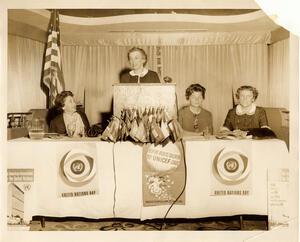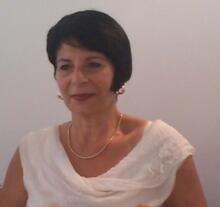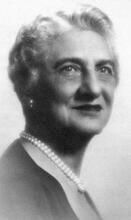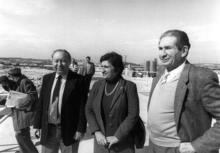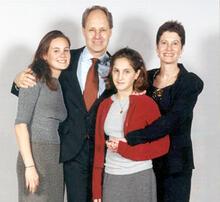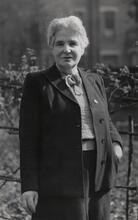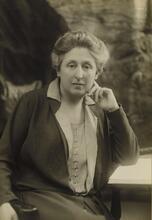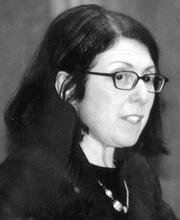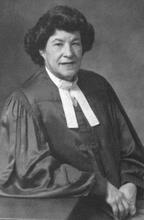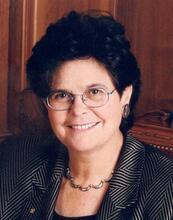Josephine Wertheim Pomerance
Josephine Wertheim Pomerance spearheaded efforts for nuclear arms control as founder and head of the Committee for World Development and World Disarmament (CWDWD). She co-founded CWDWD in 1950, helped to finance the organization, and led its efforts to convince Americans to support global development and oppose nuclear weapons.
Article
Josephine Wertheim Pomerance was a leading advocate of nuclear arms control and the United Nations. Born on October 2, 1910, to Alma (Morgenthau) and Maurice Wertheim, she was the eldest of three daughters and the granddaughter of Henry Morgenthau, Sr. She earned a B.A. from Smith College in 1933 and married the architect Ralph Pomerance on June 4 of that year. They had two sons and a daughter.
In 1950, Pomerance cofounded the Committee for World Development and World Disarmament (CWDWD). Under Pomerance’s leadership, and through her generous yearly contributions, the CWDWD worked to convince the American public to support programs for global development. The CWDWD also helped lay the foundation for the late-1950s movement opposed to nuclear testing, a fact the newly founded Committee for a Sane Nuclear Policy acknowledged by selecting Pomerance as one of only three women to sign its initial November 1957 New York Times advertisement, as well as one of the three female board members.
In 1959, Pomerance shifted her attention. She joined the staff of the American Association for the United Nations and, in 1961, secured a post with the John F. Kennedy administration as a UN adviser to nongovernmental organizations. In 1962, Pomerance helped initiate the Citizens Committee for a Nuclear Test Ban, an elite lobby effort directly supervised by the White House. Thereafter, Pomerance helped lead the Non-Governmental Committee on Disarmament, a group that played a major role in promoting disarmament at the UN in the ensuing decades. Following her death on July 15, 1980, the organization established the Josephine Pomerance award for outstanding contributions in the field of disarmament.
Cousins, Norman. The Improbable Triumvirate: John F. Kennedy, Pope John, Nikita Khrushchev (1972).
Lepper, Mary Millins. Foreign Policy Formation: A Case Study of the Nuclear Test Ban (1971).
Obituary. NYTimes, July 17, 1980.
Pomerance, Josephine. Papers. Swarthmore College Peace Collection, Swarthmore, Pa.

